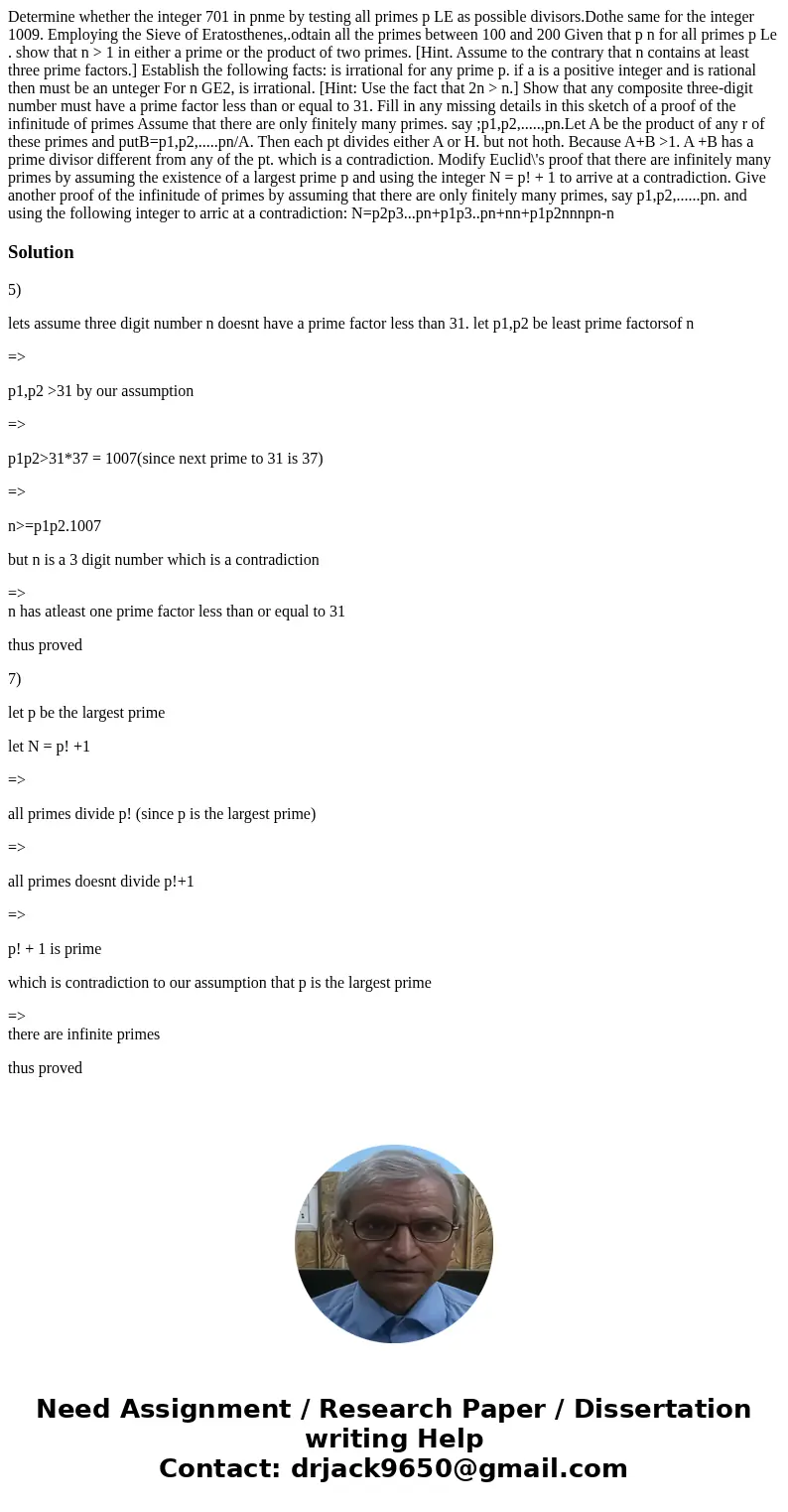Determine whether the integer 701 in pnme by testing all pri
Determine whether the integer 701 in pnme by testing all primes p LE as possible divisors.Dothe same for the integer 1009. Employing the Sieve of Eratosthenes,.odtain all the primes between 100 and 200 Given that p n for all primes p Le . show that n > 1 in either a prime or the product of two primes. [Hint. Assume to the contrary that n contains at least three prime factors.] Establish the following facts: is irrational for any prime p. if a is a positive integer and is rational then must be an unteger For n GE2, is irrational. [Hint: Use the fact that 2n > n.] Show that any composite three-digit number must have a prime factor less than or equal to 31. Fill in any missing details in this sketch of a proof of the infinitude of primes Assume that there are only finitely many primes. say ;p1,p2,.....,pn.Let A be the product of any r of these primes and putB=p1,p2,.....pn/A. Then each pt divides either A or H. but not hoth. Because A+B >1. A +B has a prime divisor different from any of the pt. which is a contradiction. Modify Euclid\'s proof that there are infinitely many primes by assuming the existence of a largest prime p and using the integer N = p! + 1 to arrive at a contradiction. Give another proof of the infinitude of primes by assuming that there are only finitely many primes, say p1,p2,......pn. and using the following integer to arric at a contradiction: N=p2p3...pn+p1p3..pn+nn+p1p2nnnpn-n
Solution
5)
lets assume three digit number n doesnt have a prime factor less than 31. let p1,p2 be least prime factorsof n
=>
p1,p2 >31 by our assumption
=>
p1p2>31*37 = 1007(since next prime to 31 is 37)
=>
n>=p1p2.1007
but n is a 3 digit number which is a contradiction
=>
n has atleast one prime factor less than or equal to 31
thus proved
7)
let p be the largest prime
let N = p! +1
=>
all primes divide p! (since p is the largest prime)
=>
all primes doesnt divide p!+1
=>
p! + 1 is prime
which is contradiction to our assumption that p is the largest prime
=>
there are infinite primes
thus proved

 Homework Sourse
Homework Sourse